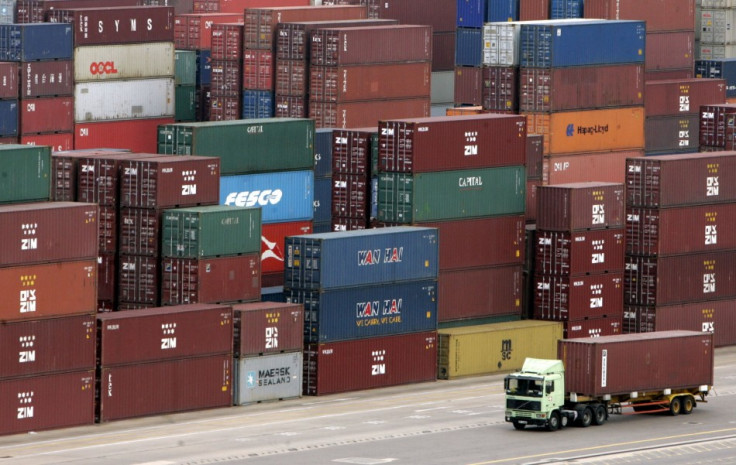Eurozone Fiscal Austerity to Blame for UK Exports Decline

Fresh research from Fulcrum Asset Management concluded that less than half of the recent malaise in Britain's economy can be blamed on fiscal austerity, as the government continues to pursue its programme of cuts to public spending as a means of reducing its budget deficit.
"An equally important factor has been the sluggish performance of UK export markets, which stems from the UK's under-exposure to the fast-growing markets in the emerging world, and its over-exposure to the recession in the Euro Area markets," said the report authored by Gavyn Davies and Juan Antolin-Diaz.
"This is the result of long-lasting structural problems in the economy - problems which cannot be readily solved by easier fiscal policy in the immediate future."
Fulcrum's report asked why the US economic recovery is better than the UK's in order to assess the Keynesian view that fiscal austerity is the main reason for Britain's sluggish performance.
It pointed out that the US "has benefited greatly from its exposure to Latin America and other rapidly growing export markets."
Other reasons for the UK economy's underperformance include a decline in the country's oil and gas production, under recording by the ONS of economic output, and the squeeze on lending.
Symptom or cause?
Despite Davies and Antolin-Diaz's assessment that the decline in UK exports may be causal to the country's dull economic performance, matching that of domestic fiscal austerity, other data suggests that it is symptomatic of a contraction in government spending by its main European trading partners - supporting the Keynesians' view.
Eurozone states in particular are working to strict targets in their austerity programmes as they burn public spending in a seemingly self-defeating attempt to quench the economic inferno blazing across the single currency area with yet more fire.
They believe that to restore investors' trust in the credibility of their country's public finances they must severely reduce their outgoings as quickly as possible, even at the expense of economic growth, jobs, and civil peace.
Eurostat revealed data showing the eurozone had slipped back into recession in the three months to September, a red flag warning that the sovereign debt crisis is still taking its toll and reinforcing the worsening outlook given to the area by the International Monetary Fund's slashed forecasts.
Trade data from the eurozone shows drastically slowing growth in imports from the UK across 2012.
The eurozone's UK imports from between January and November in 2011 had grown by 12 percent on the same period the year before.
However growth was just 2 percent on the previous year from January to November 2012, right as the first of fiscal consolidation gripped its tightest around the eurozone economy.
From the UK's statistics authority the data shows that, if performance across the whole of 2012 matches its first half, then its total exports would be down by around £7bn on the year before - even without any renewed downturn or unforeseen event.
This shows that Britain's economy is not just bleeding from the cuts of its own fiscal austerity, but has wounds pouring from its export market that were inflicted by the very same spending slashes elsewhere.
It also adds weight to the Keynesian view that it is exactly this fiscal consolidation that is needlessly creating and prolonging the global crisis.
Underexposure to emerging markets
All of this is not to say that Britain's export market is healthy but for the ailments caused by others.
As Fulcrum's report notes, the UK is under-exposed to emerging markets when it comes to exports.
"This is the result of long-lasting structural problems in the economy - problems which cannot be readily solved by easier fiscal policy in the immediate future," said the report.
Growth across key emerging and high-growth non-EU markets is slowing, such as India and China, which is making it increasingly difficult to compete against established exporters to these lucrative regions as the money dries up.
There is little the government can do with its fiscal policy to grow its exports to these places.
The Treasury has a £5bn scheme to help finance foreign importers of British goods, but this is a relatively small amount of money.
Some economists call for taxes on exporters to be cut and for deregulation, such as loosening climate change rules, to ease these businesses' cost pressures and stimulate activity.
Chancellor George Osborne has said he wants to increase the value of Britain's exports to £1tn across a decade.
With much of that relying on factors out of his control, there is little more he can do than hope.
Or lead the anti-austerity charge across Europe.
© Copyright IBTimes 2025. All rights reserved.





















